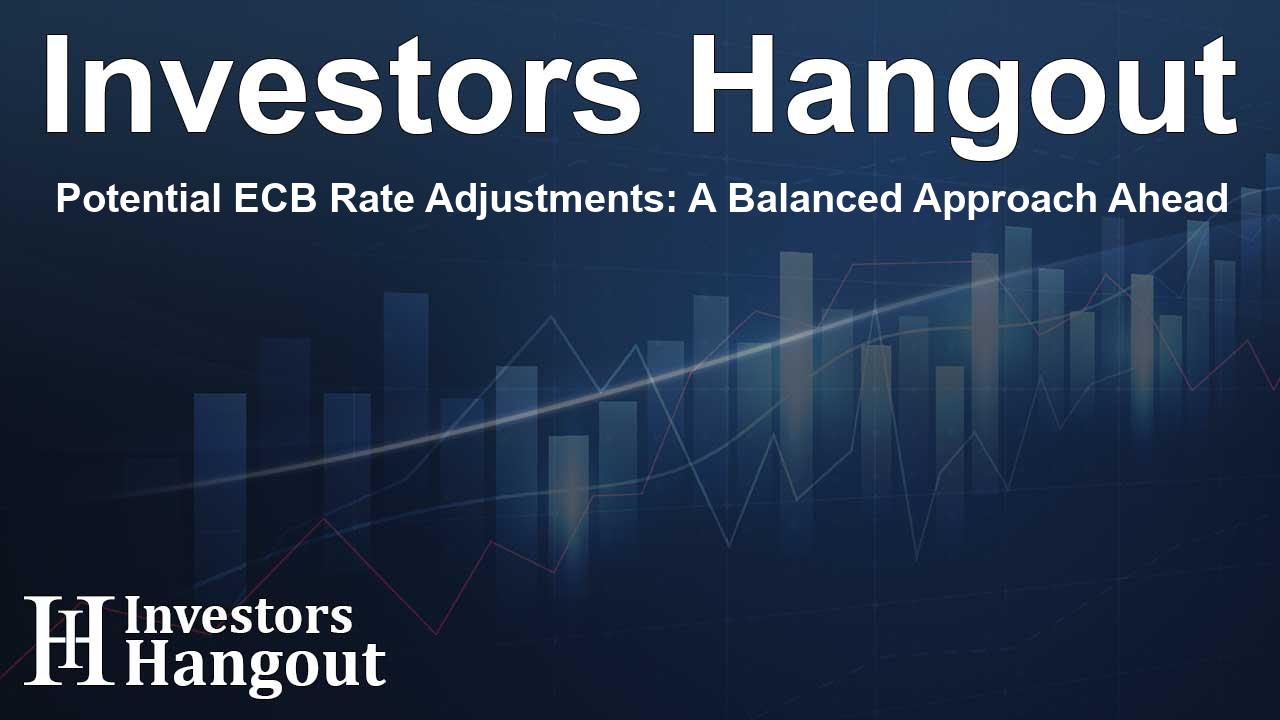Potential ECB Rate Adjustments: A Balanced Approach Ahead

Potential ECB Rate Adjustments: A Balanced Approach Ahead
As discussions around monetary policy intensify, the European Central Bank (ECB) is considering further easing its policies this year. However, this comes with the crucial need to balance between promoting growth and keeping inflation in check. Philip Lane, the ECB's chief economist, recently shared insights in an Austrian newspaper, emphasizing the delicate nature of this decision.
The Importance of a Cautious Approach
Lane highlighted that the ECB must tread carefully. An aggressive cut in interest rates could inadvertently exacerbate the current inflationary pressures, particularly in the services sector. He pointed out, "If interest rates fall too quickly, it will be challenging to bring services inflation under control." This statement reflects the complexities central banks face when trying to manage economic recovery without fueling inflation.
Finding the Right Balance
During his remarks, Lane reiterated the importance of not allowing interest rates to remain elevated for prolonged periods. Such a scenario could undermine the momentum towards achieving the ECB's inflation target. He warned that if rates are kept too high too long, it could lead to an undesirable situation where inflation falls significantly below the target of 2%. This could complicate the central bank's efforts to stabilize the economy.
Future Outlook for ECB Policies
As the ECB navigates the path forward, the focus remains on avoiding a recession while managing inflation effectively. Analysts are closely monitoring Lane's communications, as they provide insights into the central bank's strategy. The balance between supporting growth and maintaining a stable price environment is critical for economic recovery.
Reactions from Economists
Market experts have noted the significance of Lane's statements. They suggest that the ECB might pursue a phased approach to rate cuts, allowing for adjustments based on evolving economic conditions. Many believe that careful monitoring of inflation data will play a vital role in shaping future monetary policy decisions.
Frequently Asked Questions
What did ECB chief economist Philip Lane say about interest rates?
Lane indicated that while the ECB can ease rates, it must do so cautiously to avoid fuelling inflation, particularly in services.
Why is a balanced approach to rate cuts necessary?
A balanced approach is essential to prevent overheating the economy while also addressing inflation without risking a recession.
What could happen if interest rates fall too quickly?
If rates fall too quickly, it might hinder efforts to control inflation, especially in service sectors.
How do high interest rates affect inflation?
Prolonged high rates could weaken inflation momentum, pushing inflation below the target instead of stabilizing it at 2%.
What are analysts expecting from the ECB moving forward?
Analysts expect a phased approach to rate adjustments, monitoring economic indicators closely to guide decisions.
About The Author
Contact Owen Jenkins privately here. Or send an email with ATTN: Owen Jenkins as the subject to contact@investorshangout.com.
About Investors Hangout
Investors Hangout is a leading online stock forum for financial discussion and learning, offering a wide range of free tools and resources. It draws in traders of all levels, who exchange market knowledge, investigate trading tactics, and keep an eye on industry developments in real time. Featuring financial articles, stock message boards, quotes, charts, company profiles, and live news updates. Through cooperative learning and a wealth of informational resources, it helps users from novices creating their first portfolios to experts honing their techniques. Join Investors Hangout today: https://investorshangout.com/
The content of this article is based on factual, publicly available information and does not represent legal, financial, or investment advice. Investors Hangout does not offer financial advice, and the author is not a licensed financial advisor. Consult a qualified advisor before making any financial or investment decisions based on this article. This article should not be considered advice to purchase, sell, or hold any securities or other investments. If any of the material provided here is inaccurate, please contact us for corrections.
